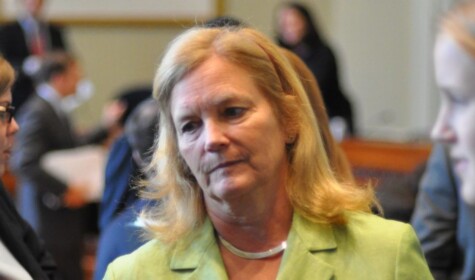Since 2013, Rep. Pingree has held a seat on the Subcommittee on Agriculture, Rural Development, Food and Drug Administration and Related Agencies. It was in this committee, while speaking to then Secretary of Agriculture, Sonny Perdue, that Pingree said, ‘the role that agriculture can play in sequestering [carbon in the] soil isn’t very well understood…people often don’t understand how important that is and how so many of the practices that we can continue to encourage at the USDA [are], like no-till and cover crops and increasing the organic matter in the soil’.
After her many years in Congress and her commitment to the future of American farming, Pingree was seen as a potential candidate for President Biden’s Secretary of Agriculture. However, Biden ultimately opted for former Secretary Vilsack. But even without a Cabinet seat, Pingree is in a strong position to influence the future of American farming.
With a new administration in the White House and with the Democrats controlling both the House and the Senate, Pingree is determined to further her agenda for a sustainable future for US farmers. ‘Farming has always been a risky business, but this moment is an especially tough one for farmers: climate change is creating unpredictable growing seasons, the economic recession caused by the coronavirus is shifting markets and demand, and trade wars continue to jeopardise our exports,’ she says. To this end, she introduced H.R. 5861 the Agriculture Resilience Act in 2020, which focuses on the importance of soil health. The Act considers multiple avenues to reduce erosion and build fertility, including:
- creating a new soil health grant programme for state and tribal governments
- authorising the USDA to offer crop insurance discounts for practices that reduce risks of soil erosion (e.g. cover crops)
- expanding the National Agroforestry Center beyond its current three locations
- considering business tax incentives for soil carbon sequestration
- modelling the potential for a carbon trading system for agriculture
With President Trump’s cabal of climate deniers in the past, the new Biden administration needs to re-establish the US as a global leader in the fight against climate change. An acknowledgement of the role of soil carbon would help advance this cause. While even a decade ago this would have been a fantasy, such an acknowledgment is considerably more likely today. In fact, certain DC whispers hold that the US Department of Agriculture is looking to create a new soil carbon code and recognise the important role that sustainable agriculture can play in helping to draw down atmospheric carbon, locking it into the soil. Its increased position on the political agenda is, in part, due to Pingree’s work. If President Biden does want to make healthy soil a component of his climate agenda, the White House would do well to utilise Pingree’s Agriculture Resilience Act as a road map for delivering against a net zero target of 2040 for the food and farming sector. In support of this vision, Pingree said, ‘facilitating participation in carbon markets is a key way to support farmers in the important role they play in climate solutions and increasing farm income’.
However, while climate change continues to pose an ongoing and credible threat to the US and the world, COVID-19 is the most pressing concern with related deaths in the US surpassing half a million. The impact that the virus has had on the US food system is significant. Pingree recognised this by saying, ‘as Congress prepares our coronavirus economic recovery packages, we must use this moment to rethink everything from our broken supply chains to recognising the critical role that farmers play in moving forward’.
To help address the post-COVID recovery, Pingree co-sponsored the ‘Local and Regional Farmer and Market Support Act’, also known as the ‘Local Farmer Act’, with Congresswoman Alma S. Adams. This Act would help the farmers, farms and families hardest hit by the virus (and the associated economic fallout) by targeting aid directly to local and regional food producers and markets, as they cope with the pandemic.
She also co-sponsored a bipartisan Bill with Congressman Jeff Fortenberry, a Nebraska Republican, to support small meat and poultry processors. The Strengthening Local Processing Act expands options for local producers and assists smaller meat processing facilities as they adapt to the challenges caused by the pandemic. ‘Maine has almost 3,400 diversified small farms that raise livestock, but our farmers have to book their dates as soon as the hooves hit the ground because the processing availability is so strained,’ she commented. Her goal is that the Act will offer support for Maine’s small slaughterhouses and butchers, many of which are family-owned businesses. The objective is to help overcome the recent disruptions to the national supply chain by strengthening regional options so that consumers are better able to purchase from within their local food system. The UK faces similar issues with meat processing, and the SFT has been working to protect local abattoirs.
While she may not be as well-recognised a figure in the US climate movement as Al Gore or Naomi Klein, Representative Chellie Pingree has been fighting for a sustainable future that recognises the power of healthy soils. Her bold vision for an agricultural policy that supports farmers to protect their soil and help sequester carbon is beginning to resonate across Washington DC. At the same time, there is growing recognition of the need to support small-scale farmers and local producers through COVID-19 and the associated recession. With any hope, the new administration will take the opportunity to make bold change and place farmers at the heart of their climate and post-pandemic recovery agenda.
Photograph: Eric Brown






